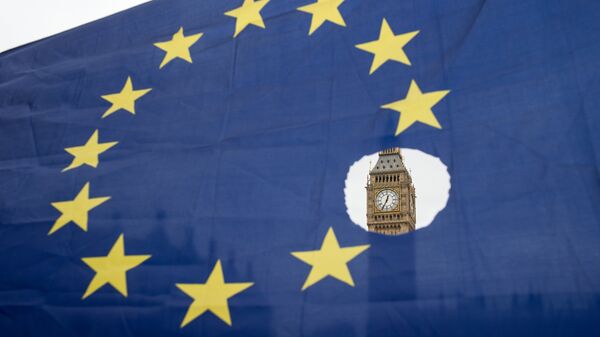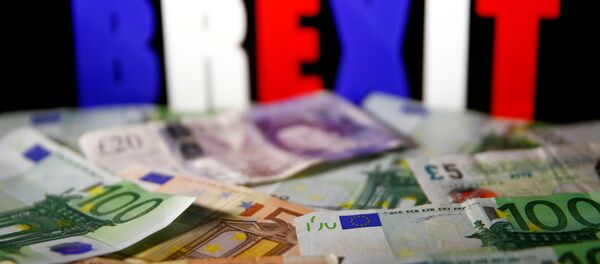Kristian Rouz – Prominent Tory donors have notified Prime Minister Theresa May they believe a ‘hard Brexit’ scenario would be better for Britain than any type of unfair or unfavorable deal. The European Union's top policymakers say Brexit is not their main priority as they are facing multiple internal challenges, thus easing the UK’s departure from the bloc.
READ MORE: No Deal, Good Deal? Brussels Reportedly Bracing for Collapse of Brexit Talks
Subsequently, the UK might leave the EU in a 'no-deal' scenario without much resistance or major objections from Brussels, possibly not even paying the EU’s ‘divorce bill’ in full.
These, apparently, include rampant mass migration, wage stagnation, and the UK’s unfavorable stance in foreign trade, which have given advantages to the continent and Canary Wharf financial firms, but hardly helped the UK’s non-financial sector. Hence the push for ‘hard Brexit’ within the UK, replicating US President Donald Trump’s course towards greater economic isolationism and trade protectionism.
Tories say the previous PM David Cameron failed to negotiate more favorable conditions for the UK’s membership of the EU, thus prompting the ‘Leave’ vote last June. Conservative MPs say a ‘bad deal’ in the current divorce process could result in widespread public resentment and could lead to PM May’s departure, bringing more radical isolationist tendencies to the surface.
Most of the UK’s Eurosceptics, including Nigel Farage’s UKIP and Rees-Mogg himself, favor a 'no deal scenario,' despite the fact that it would be a 'bad deal' scenario that could bring them to the top of British political life.
The EU, for its part, is coming to grips realizing such a prospect would harm its own interests. While PM May’s cabinet could at least give them something, Brexit hardliners would rather just quit the EU altogether.
"It seems to me that the threat of no deal is the way to get the EU to negotiate properly," Peter Bone, a Eurosceptic MP, said.
The European Parliament is preparing for its 2019 elections, and its top policymakers seek to shift focus away from Brexit and address acuter domestic issues, such as the destructive effects of mass migration, the bloc’s administrative fragility, and the challenges and discrepancies in its economic growth.
"Even before the European elections, an important roadmap with key decisions is underway," Maria Joao Rodrigues of the Portuguese Socialist European Parliament coalition said. "While the Brexit negotiations are taking place, the EU is moving ahead with its roadmap and these two things will go in parallel. This means we’ll have a big-bang moment in 2019."
In this light, the UK’s Tories say quitting the EU without a deal would release Britain from its unnecessary and burdensome obligations to the bloc, while opening up new opportunities, primarily in the sphere of international trade.
"The EU is stonewalling on the divorce bill, increasing intolerably the political pressure on (PM) May, and we still have no idea whether the trade deal will be beneficial to the UK, or whether they will kick us further in the teeth when we are down," Jeremy Hosking, a financier who's donated generously to ‘Vote Leave’ and Conservative Party said.
While EU negotiators have repeatedly blamed the UK for lack of progress in Brexit talks, bilateral trade dialogue will likely be delayed by several months. The current deadline in the Brexit negotiations in December, and if no preliminary agreement or mutual understanding is reached by then, a ‘no deal’ scenario will become the likeliest probability.
The UK negotiators have previously insisted that the sides should agree on a future trade framework rather than the ‘divorce bill’, as the EU insists – however, now Britain is not sure it needs a trade deal whatsoever.



